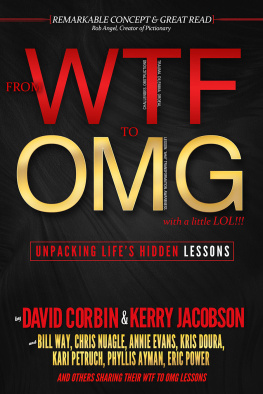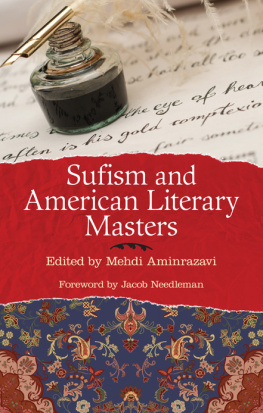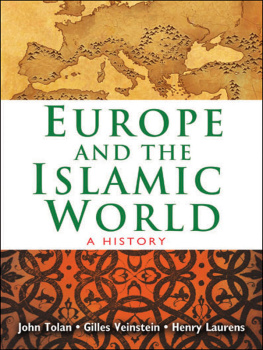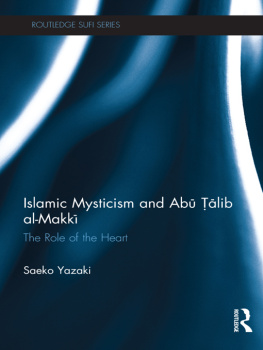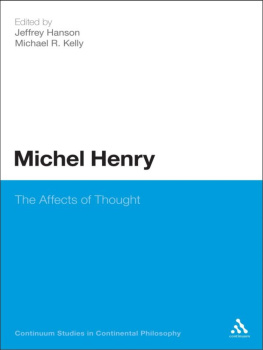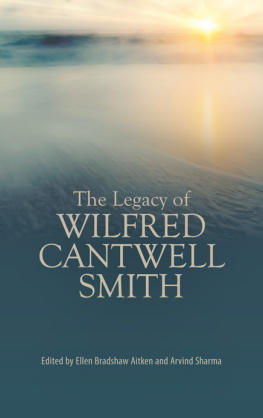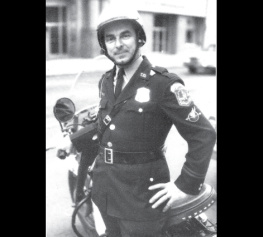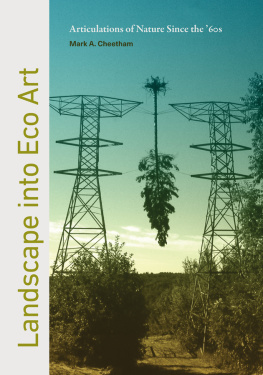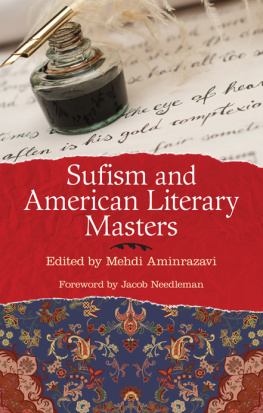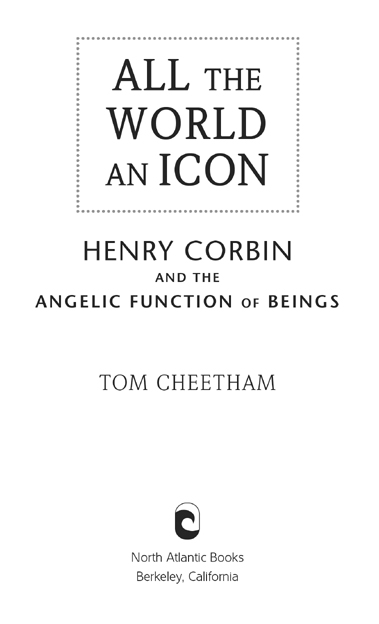Praise for All the World an Icon
For anyone attracted to the elusive realm of creative imagination, this book draws out and makes explicit what lives so strongly as a lure within the heart, the desire to find again our first home, the imaginal worlds and their inhabitants, the angels of creativity. As acknowledged master interpreter of the great work of Henry Corbin, Tom Cheetham follows Corbins path of seeing all the world as a living symbol of the divine worlds. More, he shows how to go through the portal of the world as symbol to enter the imaginal realms in their intimate autonomy, and develop impeccable trust in their spontaneous appearance as personal images. Here, in this writing, we can learn interior listening, discovering the inherent poeticizing action of the word. This beautiful volume goes beyond, way beyond, any of our usual self-serving inclinations and leads us into being servants of the angel of the Earth.
R OBERT S ARDELLO , author of Silence: The Mystery of Wholeness
Tom Cheetham once again exhibits in All the World an Icon a writing gift for taking complex and esoteric ideas that range and intermingle philosophy, mysticism, poetry, psychological schools of thoughtas well as Sophianic wisdom and angelologyand weaving them into a coherent fabric for the intelligent layperson interested in a humanities-inflected approach to Henry Corbins lifelong interest in promoting the Imagination as central to a fully lived life. Towards the end of his new book, he candidly and a bit gleefully admits, My secret hero has always been a poet. Not surprising at all; he writes with a poetic sense and an intelligibility that invites and challenges his readers. I loved this book.
D ENNIS P ATRICK S LATTERY , Core Faculty, Pacifica Graduate Institute
and author of Day-to-Day Dante: Exploring Personal Myth
through the Divine Comedy
In a series of brilliant books, Tom Cheetham has single-handedly brought the work of Henry Corbin in its depth and originality to the English-speaking world. Writing in prose at once lucid and inspired, Cheetham conveys the vision of Corbin into the Persian mystical tradition in ways that kindle reflection on the part of the reader. Drawing on extensive knowledge, Cheetham accomplishes what every serious scholar of this tradition seeks: to place the mark of thought upon a living legacy.
E DWARD S. C ASEY , Distinguished Professor of Philosophy at the
State University of New York at Stony Brook and
author of The World at a Glance
Other books by Tom Cheetham
The World Turned Inside Out:
Henry Corbin and Islamic Mysticism
Green Man, Earth Angel:
The Prophetic Tradition and the Battle for the Soul of the World
After Prophecy:
Imagination, Incarnation, and the Unity of the Prophetic Tradition
Copyright 2012 by Tom Cheetham. All rights reserved. No portion of this book, except for brief review, may be reproduced, stored in a retrieval system, or transmitted in any form or by any meanselectronic, mechanical, photocopying, recording, or otherwisewithout the written permission of the publisher. For information contact North Atlantic Books.
| Published by |
| North Atlantic Books | Cover photo iStockphoto.com/tunart |
| P.O. Box 12327 | Cover design by Susan Quasha |
| Berkeley, California 94712 |
The Latest Freed Man from The Collected Poems of Wallace Stevens by Wallace Stevens, copyright 1954 by Wallace Stevens and renewed 1982 by Holly Stevens. Used by permission of Alfred A. Knopf, a division of Random House, Inc.
The Reed Flute Song from The Essential Rumi 1995 by Coleman Barks. Courtesy of Coleman Barks.
Bob Dylan, Tangled Up in Blue, 1974 by Rams Horn Music; renewed 2002 by Rams Horn Music. Used by permission.
All the World An Icon: Henry Corbin and the Angelic Function of Beings is sponsored by the Society for the Study of Native Arts and Sciences, a nonprofit educational corporation whose goals are to develop an educational and cross-cultural perspective linking various scientific, social, and artistic fields; to nurture a holistic view of arts, sciences, humanities, and healing; and to publish and distribute literature on the relationship of mind, body, and nature.
North Atlantic Books publications are available through most bookstores. For further information, visit our website at www.northatlanticbooks.com or call 800-733-3000.
The Library of Congress has cataloged the printed edition as follows:
Cheetham, Tom.
All the world an icon : Henry Corbin and the angelic function of beings / Tom Cheetham.
p. cm.
Includes bibliographical references.
Summary: An account of Henry Corbins life and work that discusses the relation of his spiritual thought to the psychological works of C. G. Jung and James HillmanProvided by publisher.
eISBN: 978-1-58394-456-1
1. SpiritualityPsychology. 2. Corbin, Henry. 3. Jung, C. G. (Carl Gustav), 18751961. 4. Hillman, James. I. Title.
BL624.C4573 2011
200.92dc23
2011050982
v3.1
For Joan
Contents
C HAPTER 3: H ERMENEUTICS OF THE S OUL :
T HE V ISIONARY R ECITAL
Preface
W HEN I COMPLETED THE final chapter of my third book on the world of Henry Corbin and the implications of his work, I was quite sure that I had at long last finished with him. The trilogy seemed to have a certain coherence, development, and conclusion with which I was fairly pleased. I thought it would be time to move on to other things. Clearly, I was wrong. Corbin wouldnt quite let me go. There were some further demands on me that had to be met. These were of two not entirely independent sorts: personal and scholarly. Some of the chapters in the present book arose directly from the personal impacts that Corbins work has had on my life. I wrote them because I needed to. But there are also chapters of a more academic sortand I dont mean to belittle those demands by the term academic.
Much of this book is devoted in one way or another to an attempt to explain what Corbin meant by the Arabic term tawilwhich is perhaps the most important concept in his entire oeuvre. Tawil is the spiritual interpretation of the inner meaning of the Quran, to be distinguished from a literal reading. For Corbin it is the central task of any spiritual discipline. I had discovered a few years ago that the poet Charles Olson had read Corbin and appropriated some of his ideas, including the notion of tawil. I thought it important to look further into this. I soon began to realize the extent of such an undertaking and how much of an influence Corbins work has had on quite a large number of poets in the United States and elsewhere, in part as a result of the impact of Olson and his friends and admirers. As I tried to piece this history together for myself it seemed clear that any commentary on the adoption of Corbins ideas by these various writers would require being quite precise about what Corbin meant by tawil, since it is of central importance to Olson and many others. A bit reluctantly I began a fairly close reading of the first of Corbins texts to be translated into English, which are foundational for an understanding of Corbins conception of tawil.
But as I was thinking about how poets have adopted and adapted Corbins work and put it to use in contexts far distant from those he would have recognized, I began to have the nagging feeling that I needed to be more explicit than I had been about the relations among Henry Corbin and archetypal psychologists C. G. Jung (18751961) and James Hillman (19262011), both of whom were colleagues of Corbins at the annual Eranos Conferences in Ascona, Switzerland, for many years. These three figures have been characters in all of my books, but I have not before been terribly systematic about comparing and contrasting their differing styles and their uses of the idea of the Imagination. Here finally I make some modest attempt to put in place that missing piece of the puzzle. I thought, again rather naively, that such a task might be fairly quickly outlined. I soon realized that it would require a sizeable volume. That is a book that I hope someone else will write. Because now I think I really am done with writing about Henry Corbinthough his presence will stay with me as long as I am in this world, and perhaps much longer.


